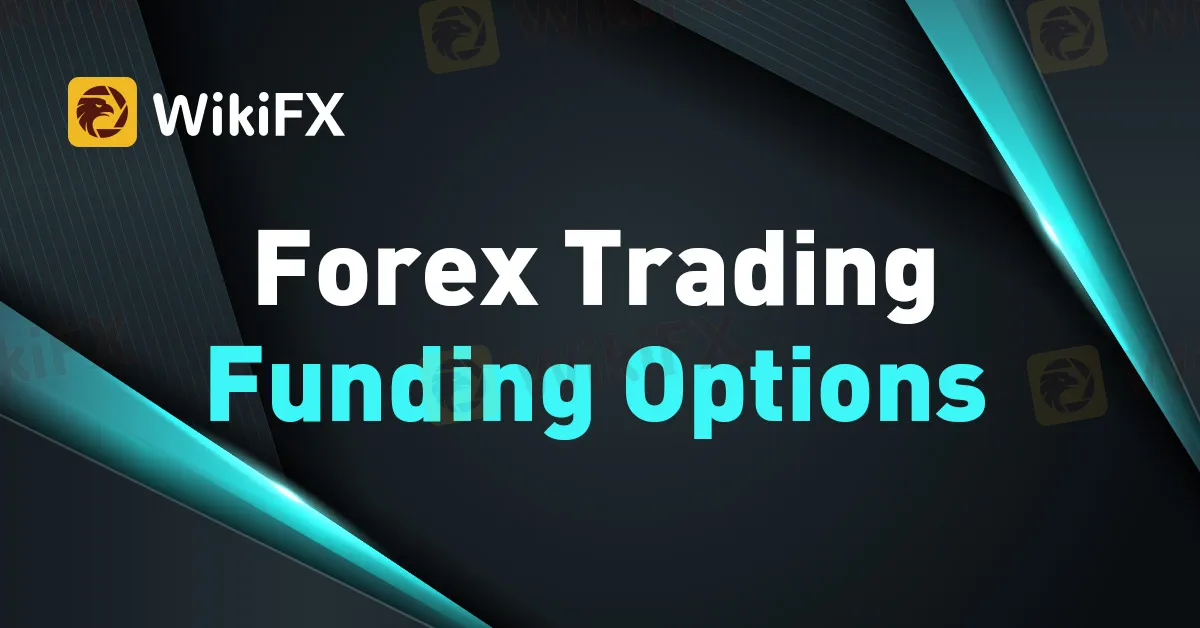简体中文
繁體中文
English
Pусский
日本語
ภาษาไทย
Tiếng Việt
Bahasa Indonesia
Español
हिन्दी
Filippiiniläinen
Français
Deutsch
Português
Türkçe
한국어
العربية
Forex Trading Funding Options
Abstract:Forex trading, or foreign exchange trading, involves buying and selling currencies in the foreign exchange market in order to make a profit. In South Africa, the market is regulated by the Financial Sector Conduct Authority (FSCA), which ensures that traders are protected and that the market is fair and transparent.

Forex trading, or foreign exchange trading, involves buying and selling currencies in the foreign exchange market in order to make a profit. In South Africa, the market is regulated by the Financial Sector Conduct Authority (FSCA), which ensures that traders are protected and that the market is fair and transparent.
The greatest place to learn about forex is on WikiFX. Users of the WikiFX forex broker search tool can rank and comment on brokers. There are a ton of teaching resources and articles in the program as well. The WikiFX app is available from the Google Play store and the AppStore.
When it comes to funding a forex trading account, there are several options available to traders in South Africa. These include using a credit or debit card, electronic funds transfer (EFT), or bank wire transfer. Each method has its own set of advantages and disadvantages, and traders should choose the one that best suits their needs.
Using a credit or debit card to fund a forex trading account is the easiest and most convenient option. Transactions are processed quickly and funds are available in the account almost instantly. However, there may be fees associated with using a credit or debit card, and traders should be aware of these before making a deposit.
EFT is another popular funding method in South Africa. This involves transferring funds directly from a bank account to the forex trading account. EFTs are generally free of charge, and the funds will be credited to the account within a few business days. The disadvantage of EFT is that it takes a bit longer to process than credit or debit cards.
Bank wire transfer is another option for funding a forex trading account in South Africa. This method involves sending money from one bank account to another through the use of a wire transfer. This method is generally safe and secure, but it can take several business days for the funds to be credited to the account. Additionally, there may be fees associated with bank wire transfers, and traders should be aware of these before making a deposit.
It is important to note that traders should only deposit funds into a regulated and licensed forex broker in South Africa, as this will ensure that their funds are protected in case of any fraud or scams. Traders should also be aware of the minimum deposit requirements for opening a trading account, as well as any additional fees associated with funding and maintaining the account.
In conclusion, there are several options for funding a forex trading account in South Africa, each with its own set of advantages and disadvantages. Traders should choose the method that best suits their needs and only deposit funds into a regulated and licensed broker to ensure that their funds are protected. Additionally, they should be aware of the minimum deposit requirements and any additional fees associated with funding and maintaining the account.

Disclaimer:
The views in this article only represent the author's personal views, and do not constitute investment advice on this platform. This platform does not guarantee the accuracy, completeness and timeliness of the information in the article, and will not be liable for any loss caused by the use of or reliance on the information in the article.
Read more

The Daily Habits of a Profitable Trader
Every professional trader follows a structured approach to ensure they are well-prepared, disciplined, and able to seize opportunities with confidence. Whether you are a seasoned investor or an aspiring trader, adhering to a robust daily checklist can significantly enhance your performance. Use this checklist to check if you are a qualified trader

How a Housewife Lost RM288,235 in a Facebook Investment Scam
A 47-year-old housewife in Malaysia recently fell victim to an online investment scam, losing a substantial sum of RM288,235 after engaging with a fraudulent scheme advertised on Facebook.

A Trader’s Worst Mistake: Overlooking Broker Reviews Could Cost You Everything
In today’s digital age, reviews influence nearly every decision we make. When purchasing a smartphone, television, or home appliance, we pore over customer feedback and expert opinions to ensure we’re making the right choice. So why is it that, when it comes to choosing an online broker where real money and financial security are at stake many traders neglect the crucial step of reading reviews?

Interactive Brokers Launches Forecast Contracts in Canada for Market Predictions
Interactive Brokers introduces Forecast Contracts in Canada, enabling investors to trade on economic, political, and climate outcomes. Manage risk with ease.
WikiFX Broker
Latest News
The Withdrawal Trap: How Scam Brokers Lure Victims into Paying More
FCA to Investors: Think Twice Before Trusting These Brokers
Trump\s tariffs: How could they affect the UK and your money
Trump gambles it all on global tariffs he\s wanted for decades
TradingView Brings Live Market Charts to Telegram Users with New Mini App
Trump tariffs: How will India navigate a world on the brink of a trade war?
Interactive Brokers Launches Forecast Contracts in Canada for Market Predictions
Authorities Alert: MAS Impersonation Scam Hits Singapore
IG Group Acquires Freetrade for £160M to Expand UK Investment Market
U.S. March ISM Manufacturing PMI Released
Currency Calculator







